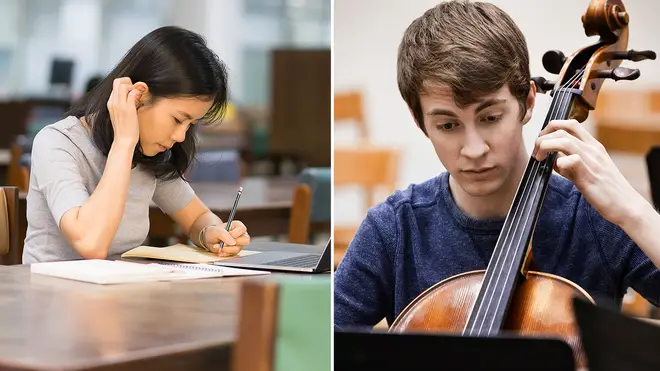On Air Now
Classic FM Breakfast with Aled Jones 6:30am - 9am
4 May 2021, 11:51 | Updated: 4 May 2021, 12:13

The Musicians’ Union expressed “horror” at the proposed cuts to music and performing arts.
Plans to halve funding for music in higher education have been labelled “catastrophic” by the Musicians’ Union.
The Office for Students (OfS) and education secretary Gavin Williamson have proposed to slash funding for “high cost” subjects by 50 percent, in a consultation on funding for the 2021-22 school year.
Music is among the subjects not considered a “strategic priority” for the government.
The budget allocated to dance, drama and performing arts, art and design, media studies and archaeology, in higher education establishments like universities and colleges, will be slashed from £36m to £19m.
In the consultation, the government says that while it wants “provision in those subject areas to continue to be widely available”, they believe the arts are “nevertheless lower priority for OfS funding than other high-cost subjects.”
The Musicians’ Union said, in an article published on 30 April, that the cuts would be “catastrophic” for their members’ work, and the financial viability of music courses.
Read more: ‘Long time coming’ – new music curriculum for England’s schoolchildren >

Andrew Lloyd Webber criticises cuts to music education
The MU said training for the next generation of musicians and music professionals would be deeply affected, and underlined that music was worth £5.8 billion to the UK economy in 2019, a figure that depends on properly funded HE provision.
It expressed fears that the notice given of these cuts will be too short to enable HE institutions to plan for September, and said the UK’s HE music provision could lose its world-leading status as a result of this budget-slash.
Members are being encouraged to publish their own responses to the consultation by 6 May, when it closes.
Last year, summer exam results revealed GCSE Music entries had declined by a quarter over a decade, while music A-Level students halved in that time period.
The Incorporated Society of Musicians pinned the plummeting figures on funding cuts to creative subjects in schools and a long-delayed “refresh” to the National Plan for Music Education, which minister Nick Gibb says is currently “on hold”.
However, in March a new Model Music Curriculum was announced for children aged five to 14, in an effort to give younger pupils access to high-quality music education. It cued hopes that better provisions further down the school could help GCSE, A-Level and degree-level Music numbers bounce back, with proper funding down the line.